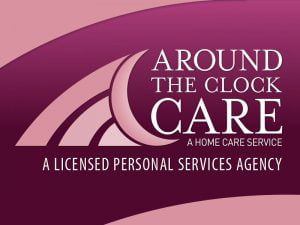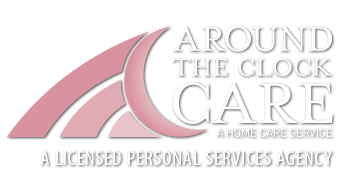Caring for a Senior with Post Holiday or Seasonal Depression

Caregivers are often the first to notice when a senior’s mood or behavior seems “off.” It should be noted If the senior in your care seems unusually irritable or disinterested in activities that they previously found enjoyable. Consistent mood changes, trouble sleeping, and even a decline in personal hygiene can be signs of depression and it may be time to seek professional help.
Why Are Seniors at Risk for Depression?
According to Mental Health America, more than two million seniors in the United States suffer from some form of depression, yet fewer than 3% are treated by mental health professionals. Unfortunately, over half of seniors indicate they believe it’s “normal” to feel depressed as they get older. This can prevent seniors from seeking help on their own.
Aging seniors also experience several risk factors for experiencing depression in the first place:
- Late‑in‑life chronic illness
- Death of a loved one
- Loss of ability to work or drive
- Inability to participate in previously enjoyed activities
Despite these increased risks, depression does not need to be a normal part of aging.
Some things to watch for.
Caregivers can play a vital role in identifying mental health issues in seniors and helping them get the help they need. According to the NHI, sadness is not always the primary symptom of depression in older adults.
Others signs of depression may include:
- Anxiety or restlessness
- Feelings of emptiness
- Loss of interest in activities and hobbies
- Pessimism, helplessness, worthlessness, guilt, and irritability
- Lack of energy
- Trouble concentrating and making decisions
- Sudden difficulty falling asleep or oversleeping
- Appetite changes
- Thoughts or preparation for suicide, including recklessness or spontaneous donation of prized possessions
- Drug or alcohol abuse
- Aches, pains, and digestion issues with no clear cause
If caregivers notice these symptoms persisting for more than two weeks, it is best to consult the seniors primary physician about changing moods or behaviors.
Remember, sadness can also be seasonal. Know the signs of seasonal affective disorder (SAD) and the post-holiday blues to differentiate seasonal sadness or depression from long term clinical depression.
Post-Holiday Blues
Suicide rates often peak after the holidays — a phenomenon which some experts attribute to a letdown after the end of the celebration. Because of this, January and February are a good time to check in on the mental health of seniors.
Seasonal Affective Disorder (SAD)
According to SeniorHealth365, “The elderly are often less mobile, fairly intolerant to cold and may be suffering with underlying conditions that are aggravated in the winter months.” In addition to the same signs as general clinical depression, people experiencing SAD can exhibit other symptoms.
- Oversleeping
- Increased cravings for high‑carbohydrate foods
- Weight gain
- Tiredness
Scientists believe SAD is triggered by reduced exposure to sunlight, which affects the body’s circadian rhythms, serotonin levels, and melatonin production.
In addition to consulting with seniors’ physicians, caregivers can help seniors manage SAD.
- Phototherapy (light therapy)
- Daily walks outdoors
- Opening blinds and curtains to let light in
- Encouraging a healthy diet
How Can Caregivers Help?
Caregivers and family members who observe signs of depression in seniors should seek professional help. Although a small portion of suicidal people do not exhibit symptoms, 75% do. Depression is treatable once diagnosed.
Caregivers are the first line of defense for seniors battling with depression or thoughts of suicide. And helping seniors cope with depression requires only a few simple steps.
- Watch for signs and symptoms of depression or suicidal thoughts.
- Carefully monitor seniors who take medications that list depression or suicidal thoughts as a potential side effect.
- Ask aging seniors’ physicians to screen them for depression, along with potential physical triggers such as diabetes, thyroid disorders, multiple sclerosis, Parkinson’s disease, strokes, tumors, and even some viral diseases.
- Enlist help from a physician or mental health professional immediately if you suspect depression in a senior under your care.
Depression in seniors is common, but that doesn’t mean aging adults should go on suffering. There is always a solution once the problem is identified.
https://training.mmlearn.org/blog/identifying-and-managing-depression-in-seniors





